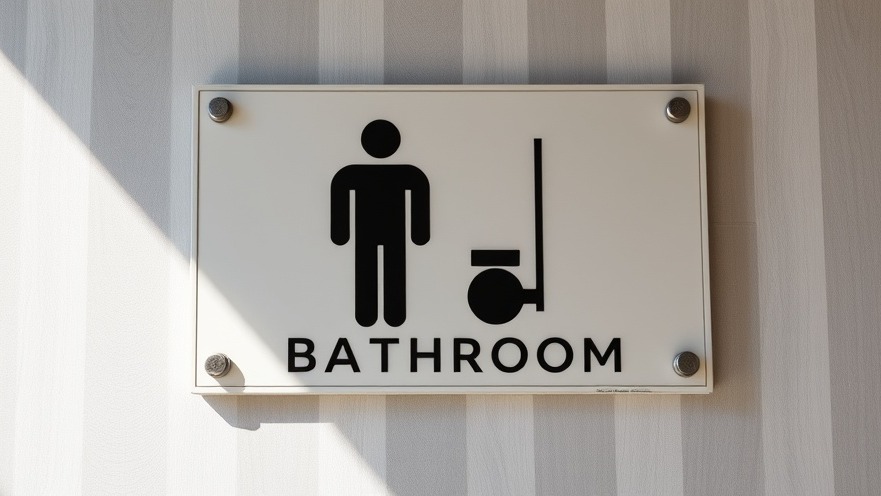
Understanding the Latest Bathroom Bill Proposals in Texas
In a significant move, the Texas Legislature is revisiting one of the most controversial topics concerning transgender rights: the use of bathrooms. Bills have been filed in both the House and the Senate that aim to restrict the use of multi-use bathrooms in K-12 schools, public universities, and state and municipal government buildings based on birth certificate sex designation. These proposals come in the wake of increasing momentum for such restrictions, both in Texas and nationally.
The Political Landscape Behind Bathroom Bills
State Senator Mayes Middleton filed Senate Bill 7, while House Bill 32 was introduced by Rep. Valoree Swanson. Both bills echo legislation that failed in previous sessions yet seem poised to gain more traction this time around, particularly as leadership has made this a special session priority. Notably, these bills come with hefty penalties for violations, including a $5,000 fine for first-time offenders and $25,000 for recurring violations, indicative of a more aggressive stance on enforcement than in previous years.
Background: Why Bathroom Bills Keep Resurfacing
Since 2017, debates about bathroom access for transgender individuals have sparked considerable national discourse, with similar laws being introduced in various states. The unsuccessful bills of earlier sessions did not go unnoticed, leaving a path for advocates and some lawmakers to reintroduce similar ideas with adjustments aimed at overcoming legal challenges. Current versions are more robust, tightening restrictions and suggesting oversight by the Attorney General for alleged violations.
The Implications of Restricting Trans Rights
Texas's push towards defining gender strictly based on biological sex extends beyond just bathrooms. Proposed legislation disallows the housing of transgender individuals in jails and prisons according to their identifying gender and would prevent trans women from accessing women’s shelters in cases of domestic violence. Such restrictions highlight a troubling trend in legislation that seeks to disproportionately impact the transgender community, framing these individuals as threats rather than highlighting their rights and dignity.
Current Reactions and Public Opinion
The reintroduction of these bills has elicited significant public response, with advocates across the state arguing against the potential harm these bills could pose not only to transgender individuals but to society as a whole. Many view this legislation as an infringement on civil rights, arguing that it reflects a broader attempt to suppress the visibility and rights of transgender individuals in public life. Advocacy groups are mobilizing once again, preparing to fight against what they perceive as discriminatory practices.
What Lies Ahead for Texas and Its Transgender Community
As the legislative session unfolds, the path forward for these bathroom bills is uncertain. Analysts predict a heated debate in the Texas House and Senate, scrutinizing the implications such laws could have on the state's ongoing struggle with civil rights. Heightening national attention may further amplify these discussions, as Texas remains a focal point for LGBTQ+ rights issues.
In conclusion, understanding the implications of these bathroom bills is essential not only for the transgender community but also for all Texans as these laws threaten the fundamental tenets of inclusion and justice. The ramifications of such legislation extend into the very fabric of society, affecting the lives of thousands and raising critical questions about the future of civil rights legislation across the country.
 Add Element
Add Element  Add Row
Add Row 



Write A Comment